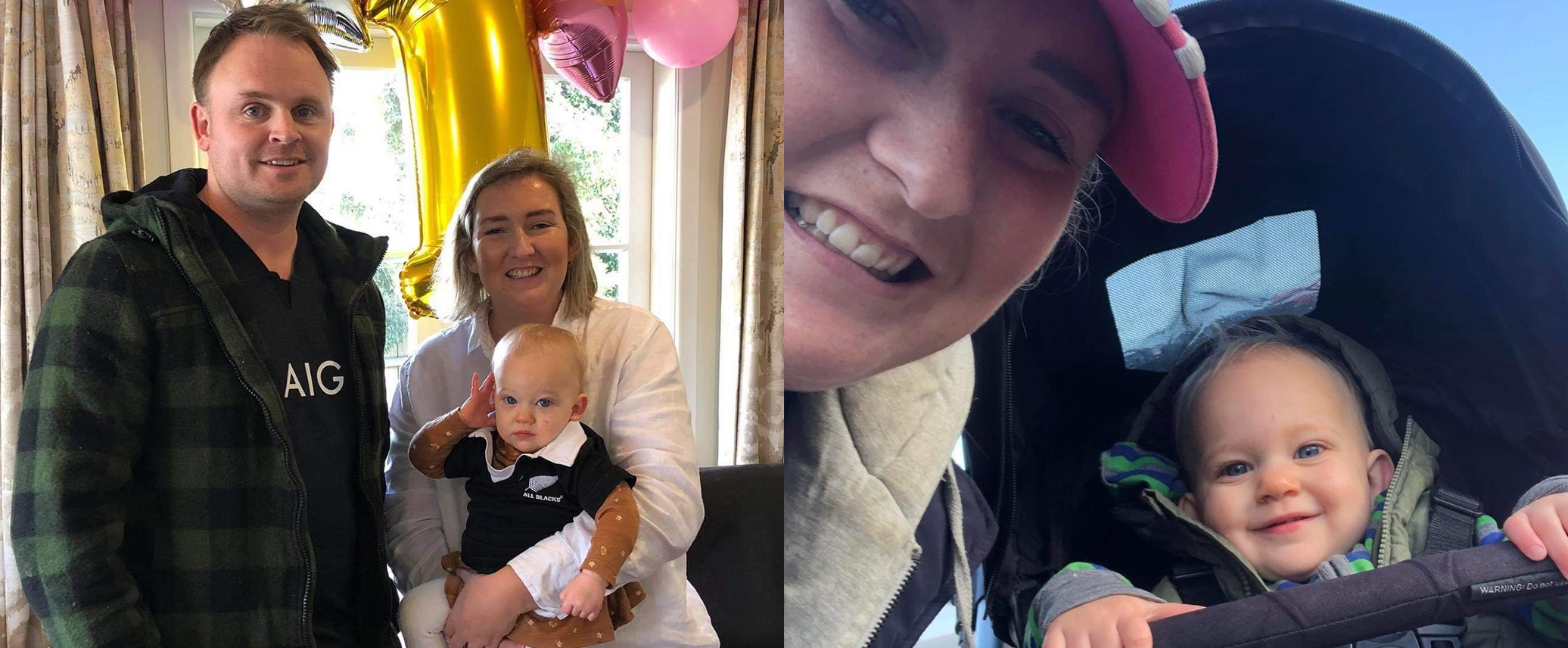Finding out she had epilepsy and learning what this means for her life and her future, has been a journey of discovery for Kate and her family. Her diagnosis, made four years ago, has changed her life – and inspired others.
Kate ran a half marathon towards the end of last year to raise funds for the Neurological Foundation.
She had planned to take part in the 2021 Auckland Marathon but when COVID-19 postponed the event, Kate strapped on her running shoes anyway determined to see her fundraising efforts through to the end.
Kate completed the 21km half marathon distance at Point Wells near Warkworth, north of Auckland, raising a whopping $3,800 to support neurological research.
“I don’t have any experience as a runner but when my license was suspended, I wanted to focus on something I could do – running!” Kate says.
“I think the exercise has helped with my overall physical and mental health and I’d often take Billie along in her buggy during my training runs, so it worked for me as a mum as well.”
Billie is Kate’s adorable 18-month-old daughter. Kate’s epilepsy worsened during her pregnancy with Billie and these heightened symptoms continued after she was born.
As a working mum, Kate must manage the usual load that many face – juggling daycare runs, playdates and GP visits, managing a household and caring for Billie – but because of her diagnosis, Kate isn’t able to drive. We’ve all been dealing with restrictions over the past two years, but Kate, and many like her, have had to manage those brought on by a neurological condition as well as those related to COVID-19, for the safety of both herself and her family.
“It's definitely a hassle. I rely on my husband and friends and family much more to take me places and I am also constantly on alert about making sure I don’t get too tired or stressed,” Kate says.
“My last seizure was in July last year and I am in the process of decreasing my medication. Fingers crossed it stays like this so I can eventually get my license back.”
A person with epilepsy usually needs to be seizure-free for 12 months before they are considered fit to drive again.
Kate’s husband, Rob, says it has been difficult to watch his wife go through a major life adjustment.
“Epilepsy, we have learnt, is so unpredictable, so coming to terms with this new change in our lives has definitely been hard. I have now become more confident dealing with seizures when they happen and the postictal phase and providing support for Kate and our daughter,” he says.
Like most people, Kate wasn’t a stranger to neurological conditions, and has had loved ones affected by Parkinson’s disease, stroke, and motor neurone disease. Because of this, and her own experience, her gratitude for research has grown.
"Having witnessed the effects neurological conditions have had on the people I love, and then being diagnosed with one myself, I have realised the incredible importance of research – but I won’t lie, it’s been difficult during these times. As well as trying to manage your condition, you’re also trying to manage a thousand other things: your family, your mental and physical wellbeing, your work, and so on. Having research stalled isn’t the best feeling because research is hope for me and people like me.”
This is why we need your help to Give the Green Light. Resuming research now will change lives, like Kate’s, in the future with new preventions, treatments, and cures. Right now, and most importantly though, research can give hope.
By donating today you can help people like Kate by funding essential research to find future preventions, treatments and cures.
To make a donation visit givethegreenlight.org.nz.






